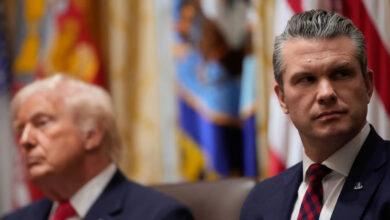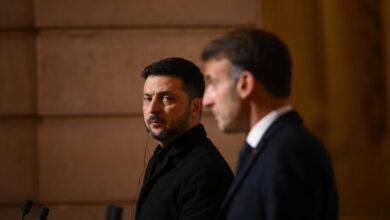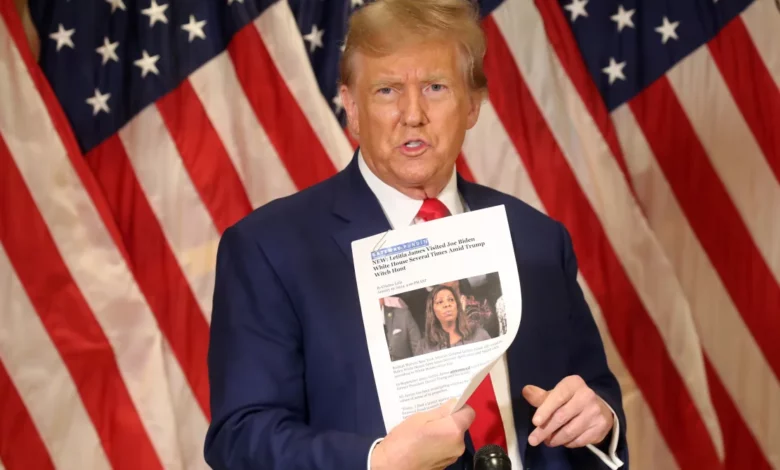
Former US President Donald Trump briefly returned as a central character in European politics earlier this week.
According to the European Union’s internal market chief, Thierry Breton, Trump told European Commission President Ursula von der Leyen in 2020 that “if Europe is under attack, we will never come to help you and to support you.”
Breton’s remarks during an event at the European Parliament came less than a week before the Iowa caucuses and the start of voting in the US Republican presidential primary, which Trump is widely expected to win. They also coincided with Breton’s proposal for a €100bn fund to bolster ammunition production across the bloc – a fact not lost on his critics.
Multiple EU officials and diplomats noted to CNN that his sudden recollection came at a particularly sensitive time, as the EU attempts to build its own defense capabilities outside of the US-led NATO alliance. It is no secret that ammunition stocks across NATO member states have become depleted because of Western military support for Ukraine.
Whether Trump actually made these comments or not is largely immaterial to European officials. The former president’s views on America’s historic role in European security are well known. During his presidency, Trump regularly talked about defunding NATO while also complimenting authoritarian leaders, including Russia’s Vladimir Putin, who are considered adversaries of the very same military alliance.
The reminder that Trump holds this view and the fact that he might soon return to the White House do, however, cause real concern and anguish in Brussels.
Partly, because his beliefs are rooted in the uncomfortable truth that European nations have underfunded their militaries for decades on the assumption that war was unlikely and that if the worst were to happen, the US would rush to their aid.
However naive that might sound, Trump trashed that assumption. And his hostility toward the Ukraine war effort has an impact even now, playing into the Republican Party’s reluctance to pass more US funding for Ukraine.
“When Trump came along it woke us up to the fact that the US might not always act in European interest, especially if it goes against American interest,” a senior EU diplomat told CNN. “It sounds naive saying it out loud, but that was the assumption a lot people made.”
During the Trump presidency, this new reality caused Europe to do some soul-searching. Officials concluded that Europe needed to prepare itself for a future where the United States couldn’t be relied on in the same way it always had been. That thinking was underscored when President Joe Biden kept many of Trump’s America-first policies, particularly on trade and China.
This is the second reason that reminders of Trump’s anti-Europe sentiments sting: Despite its best intentions, Europe’s Trump-proofing, as some inelegantly call it, has not gone very far.
On trade, Europe has taken measures to reduce its dependencies on single nations and diversify its supply chains so it cannot be held to ransom should a trading partner suddenly change its policies, as Trump did on steel, placing tariffs of 25% on imports from the EU.
“No amount of de-risking can make up for a sudden policy change that makes it harder for Europeans to sell into America,” says Ian Bond, deputy director at the Centre for European Reform think-tank. “In a second term, it’s not beyond the realms of possibility that he could decide some other material is a risk to American security.”
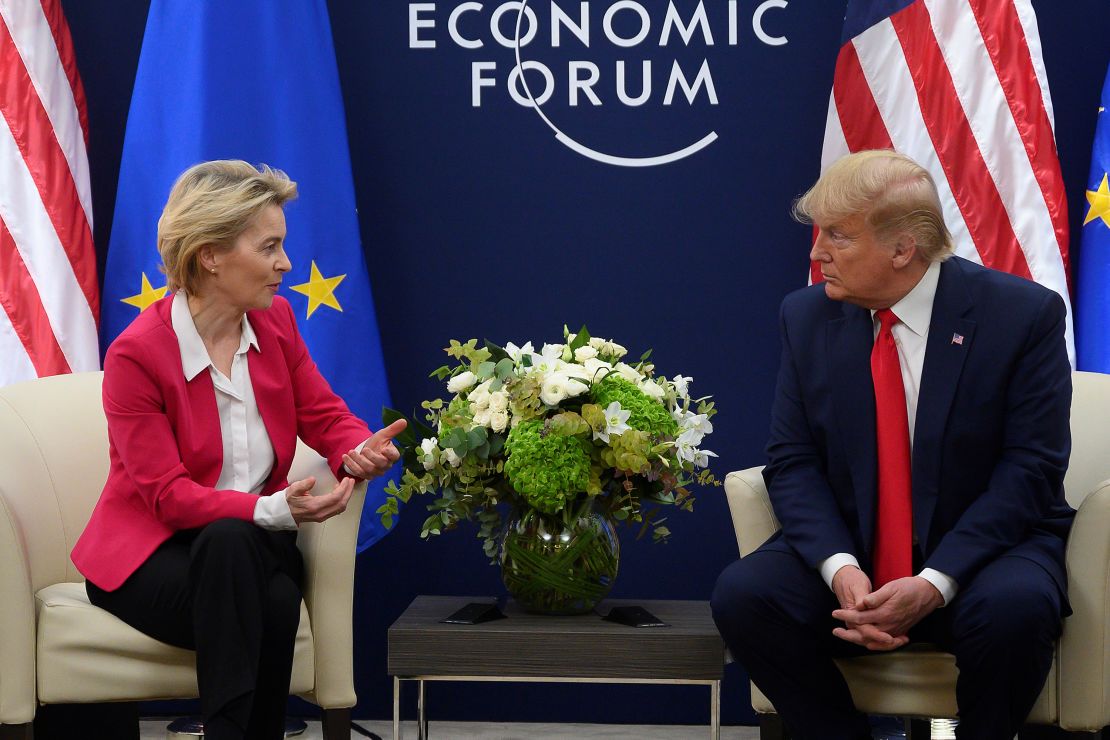
On defense and security, the EU has acknowledged its past failures and agreed to dramatically increase its defense spending across the bloc and the continent more broadly. It has taken the war in Ukraine very seriously, sending billions of euros in funding along with weapons and aid. It is also working hard to bring Ukraine into the bloc as soon as possible.
Historically, poking Russia and sending this level of European money and resources to a third-party would have been impossible as the member states would almost certainly disagree over whether it was in their own national interest. It has been remarkable that Europe the EU has been able to go as far and as fast as it has in supporting Ukraine since the start of the invasion.
Despite this, the uncomfortable truth is that rearming 27 countries and changing the way they trade takes a very long time, so the deep-rooted ties with – and ultimate dependency on – would not be easy to unpick, even under normal circumstances.
But the past few years have been anything but normal for Europe. Covid-19 took up an enormous amount of its bandwidth, while the war in Ukraine, a country that borders the EU and is trying to join the bloc, is top of the agenda at every meeting of EU leaders.
Aside from the distractions, Trump-proofing is hard because Trump himself presents quite a unique threat to Europe.
Unlike China or Russia, the US is not a hostile state. It is an old ally and is not actively attacking Europe in the way Beijing or Moscow might through cyber attacks or military action.
In both those cases, Europe can use economic sanctions or an increased military presence to protect its interests. Clearly, even under Trump, that would not be appropriate or necessary against the US. However, diplomatic action against Trump is also tricky, as his thin-skinned nature means any criticism risks a massive overreaction.
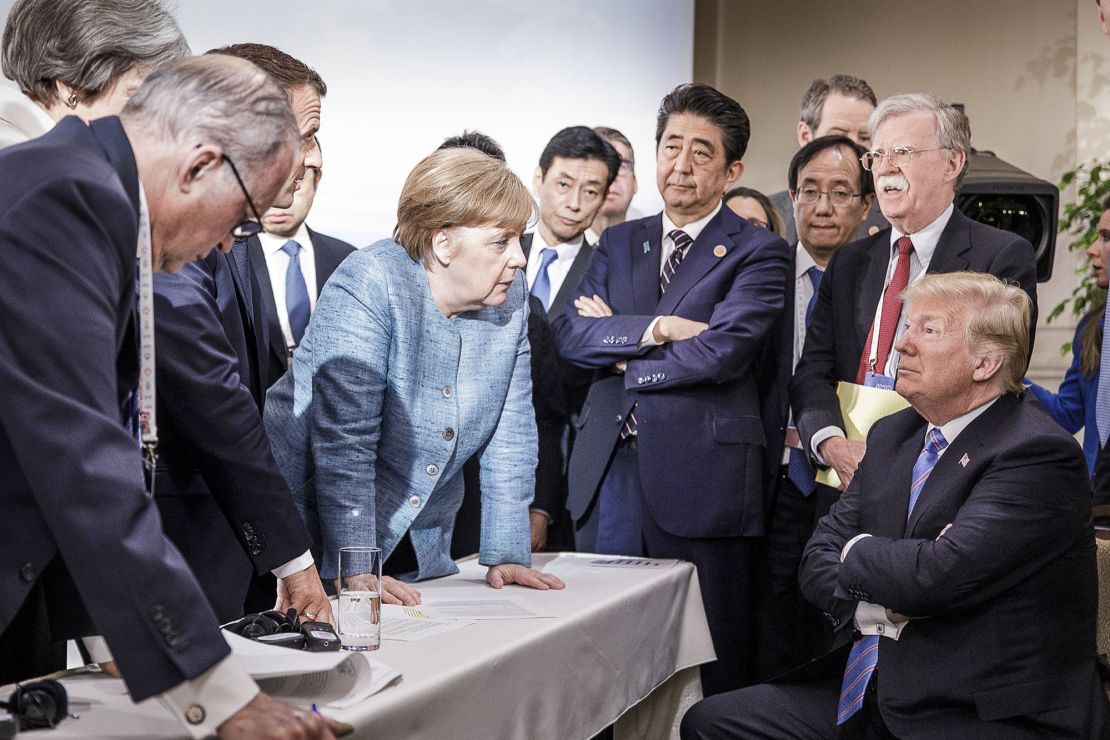
The conclusion some diplomats have reached is that the best way to deal with Trump, should he win this year’s election, is to stay calm and keep plugging away at distancing Europe from the US.
“Last time, we spent so much time scrambling to respond every time Trump blurted out whatever thought has just dropped into his head. Quite often, though, he didn’t act on things he said,” an EU official told CNN.
Another European diplomat said Brussels cannot get distracted by Trump as it did the first time around, nor can it pay too much attention if Trump raises the prospect of ending US support for Ukraine. “If he starts talking about that, there’s not much we can really do. We just need to be mature and carry on because however this war ends, it’s Europe that will bear the consequences, not America.”
It’s no secret that European officials would rather Trump doesn’t return to the White House. Christine Lagarde, head of the European Central Bank, said only this week that Trump’s return would be a “threat” for Europe. The toxic legacy of his first presidency might be that the trans-Atlantic relationship is never the same again.
The trouble for Europe is that it will take years, maybe decades, to end its reliance on the US. And in that time, it will be very hard to ignore what the most powerful person on the planet is saying on any given day, especially when it’s about you.


